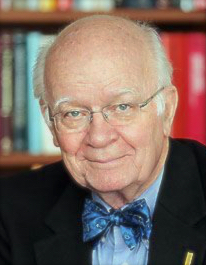Not Wishy-Washy
“Watered-down,” “characterless,” “irresolute,” “sapless,” “bland,” “namby-pamby,” and “diluted,” are some synonyms for “wishy-washy,” a word some critics say I use too often when I write about or discuss what is unproductive in interfaith (and other “inter-“) relations
 “Watered-down,” “characterless,” “irresolute,” “sapless,” “bland,” “namby-pamby,” and “diluted,” are some synonyms for “wishy-washy,” a word some critics say I use too often when I write about or discuss what is unproductive in interfaith (and other “inter-“) relations. A good antonym for “wishy-washy,” whose usage is first traceable to 1693, is “principled,” but there are many more. Well-intentioned, tolerant folks are properly repelled if not threatened by the murderous language that frequently finds its way into expressions of religious faith, life, and culture. Some of them believe that if they only half-believe or half-express elements of their own faith and tradition, they will help bring about a new peaceable kingdom.
“Watered-down,” “characterless,” “irresolute,” “sapless,” “bland,” “namby-pamby,” and “diluted,” are some synonyms for “wishy-washy,” a word some critics say I use too often when I write about or discuss what is unproductive in interfaith (and other “inter-“) relations. A good antonym for “wishy-washy,” whose usage is first traceable to 1693, is “principled,” but there are many more. Well-intentioned, tolerant folks are properly repelled if not threatened by the murderous language that frequently finds its way into expressions of religious faith, life, and culture. Some of them believe that if they only half-believe or half-express elements of their own faith and tradition, they will help bring about a new peaceable kingdom.
In the late 1980s, R. Scott Appleby and I were charged by the American Academy of Arts and Sciences with heading the Fundamentalism Project, which was advanced through many conferences, interviews, and inquiries involving scores of scholars, and which issued in five volumes (1991-1995). At its end I moved toward emeritus status, but principled Appleby went on to direct the Cushwa Center for the Study of American Catholicism at the University of Notre Dame. Recognizing his interfaith expertise, the University appointed him to the deanship of the Keough School of Global Affairs. He showed up last week (New York Times, March 17), pictured with Notre Dame President the Rev. John L. Jenkins, in a major story on the University’s newest invention, the Rafat and Zoreen Ansari Institute for Global Engagement with Religion.
As the Fundamentalism Project was completing its work, militant fundamentalist movements in many religious forms were becoming ever more threatening and lethal. Appleby and I, and the other scholars and religious leaders, were often asked, “Where are the moderate Muslims who you assure us are out there, when all we hear about are the haters, traducers, and fanatics or extremists who do what they do in the name of their religion?” The believers and worshippers who deserved respect and inspired hope in the various religious communities—Islam was cited most—and in religion itself did not always favor the word “moderate.” In many contexts it is indeed a very helpful and healthful designation, but those who disdained wishy-washiness almost as much as they despised extremism wanted to be seen as the principled adherents they were.
When Notre Dame invented its first new “school” in a century, it differentiated itself from more traditional specialties such as education, medicine, politics, and the like, dedicating the Keough School instead to “Global Affairs.” The new Ansari Institute focuses on “Global Engagement with Religion.” It will be not anti-political, but rather pro-education, pro-knowledge, pro-relationships of people to people, whether in close-ups or in large-scale studies. The principled philanthropists Ansari are both medical doctors and longtime residents in Granger, Indiana, who have previously given time and money to causes in support of children with autism. They are well known as civic leaders who want to give back to America something of what they have received. Regularly involved with interfaith groups, Mrs. Ansari reported, “We drew strength from everybody’s traditions. We shared all of our faiths and talked about our differences and also our commonalities.” How best to advance that experience? The new institute which bears their name will foster such work.
Haters, jihadists, terrorists, and exploiters of the negative side of “everybody’s traditions” make headlines. Now those who work globally on human “affairs” and “engagement” have a strong partner at Notre Dame. They may not hog the headlines, but their story will make its place—and a difference.
Resources
- Sullivan, Paul. “An Unorthodox Gift to Notre Dame from Muslim Philanthropists.” The New York Times. March 17, 2017.
 Author, Martin E. Marty, is the Fairfax M. Cone Distinguished Service Professor Emeritus of the History of Modern Christianity at the University of Chicago Divinity School. His biography, publications, and contact information can be found at www.memarty.com. Author, Martin E. Marty, is the Fairfax M. Cone Distinguished Service Professor Emeritus of the History of Modern Christianity at the University of Chicago Divinity School. His biography, publications, and contact information can be found at www.memarty.com. |
Sightings is edited by Brett Colasacco, a PhD candidate in Religion, Literature, and Visual Culture at the University of Chicago Divinity School. Subscribe to receive Sightings in your inbox twice a week. You can also follow us on Facebook and Twitter.


